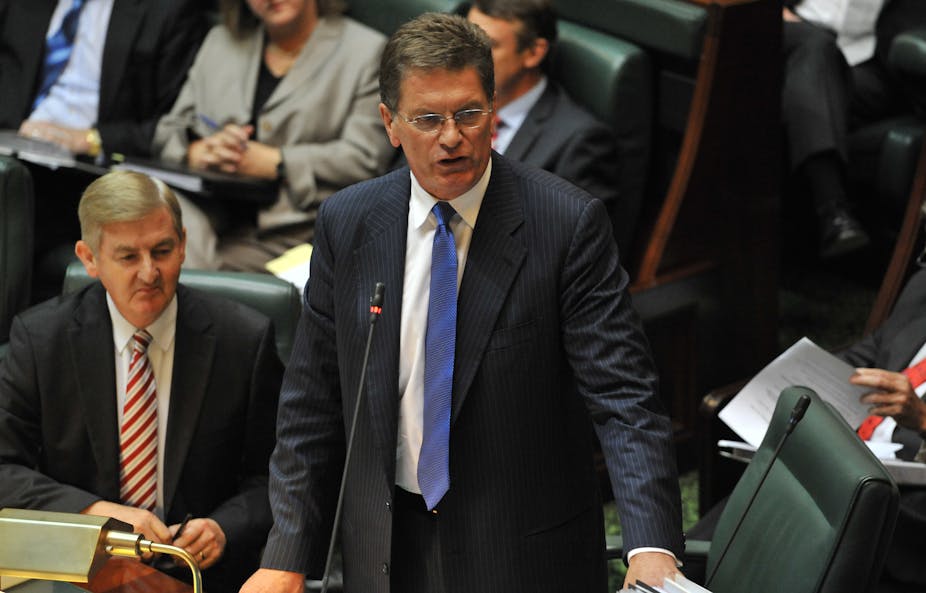The dramatic resignation of Victorian Premier Ted Baillieu may have surprised many but cannot be considered altogether unexpected.
A year that began poorly for the now ex-Premier yesterday completely overwhelmed the government. While the media was focused on the ongoing federal circus in Sydney’s west, the current tumult of Victorian politics appears to have taken centre stage.
The decision of Frankston MP Geoff Shaw to quit the state parliamentary Liberal Party has further limited the Coalition’s already slender majority in the 88 seat Legislative Assembly. Prone to the occasional gaffe the former nightclub bouncer and staunch social conservative has come under increased pressure to resign his seat over allegations he misused parliamentary entitlements.
In recent months this issue among others has engulfed Baillieu’s premiership and served to partially destabilise the government. Often considered the accidental Premier, Baillieu’s unexpected victory in the 2010 election will now be remembered as his lasting contribution to Victorian State politics. Despite engineering the extraordinary result the slim electoral margin checked Baillieu’s grip on the reigns of power.
Incoming Premier Dr Denis Napthine inherits a government absorbed by a potentially volatile numbers game that threatens the ongoing stability of the parliament. With the Liberal-National Coalition on 44 seats (including Speaker Ken Smith) Labor effectively on 43 and Shaw now occupying the crossbenches the Legislative Assembly faces a situation whereby a deadlock could possibly trigger an unprecedented constitutional crisis.
Should Shaw decide to altogether abandon his former colleagues he could hypothetically precipitate a previously unseen period of parliamentary limbo. Typically in Westminster derived systems such a stalemate would ordinarily be broken by dissolving the lower house and calling a fresh election.

However, changes to the State’s constitution enacted by the Bracks Labor government in 2003 established the prevailing system of fixed four-year terms. As a result the only other means by which the Assembly may be dissolved is through a successful motion of no confidence against the government.
A deadlock caused by an even split of numbers between the parties would create a circumstance whereby motions of no confidence could not succeed leaving no possibility of the Assembly being dissolved. Currently, the Victorian constitution provides no alternative mechanism to resolve this dangerous impasse.
A deadlocked Assembly is capable of exposing the more awkward aspects of the Victorian system. In a situation where the numbers are tied, a government, reliant on a functional parliament to pass its legislation, (including supply bills), would be effectively obstructed from doing so.
With the State’s budget only two months away the potential implications for the Parliament are profound. How would a government maintain the confidence of the people if it can no longer advance its legislative agenda?
To further complicate matters what is the Governor’s position when the constitution is effectively mute on the subject? In Victoria a Governor would be unable to allow a dissolution that contravenes the standing constitutional provisions that serve as a limit on his/her authority.
Had these issues been more closely considered at the time of the constitutional amendment in 2003 this hypothetical scenario could have been wholly avoided. A common sense solution to this conundrum would be to adjust the number of seats in the Assembly to an odd number (such as is the case in every other State lower house in Australia). Unfortunately (as a result of the 2003 changes) the only process by which the numbers of the Victorian Assembly can be altered is through a referendum.
While the possibility of a constitutional crisis is remote it remains as a threat that looms large over the incoming Premier. Yesterday’s events may have momentarily overwhelmed the government but an imperfect constitution casts a menacing shadow over tomorrow.

